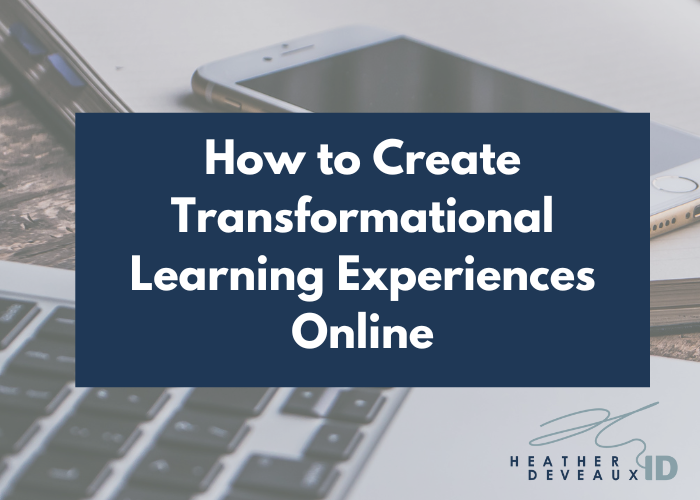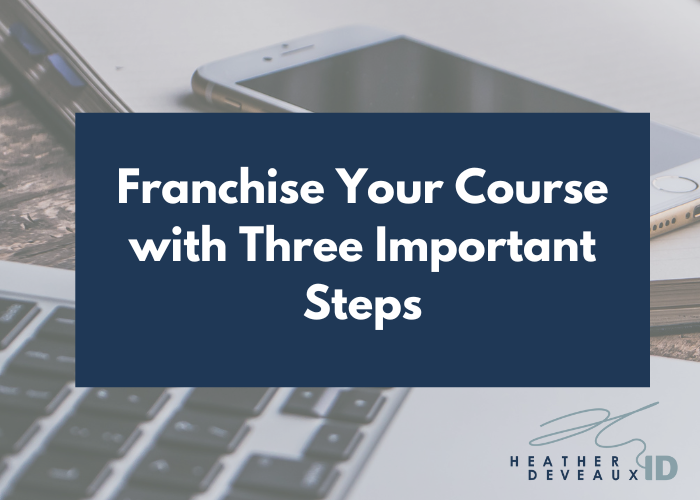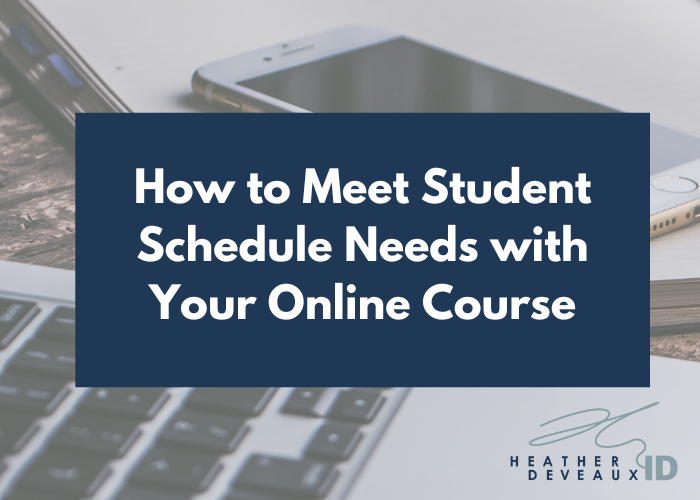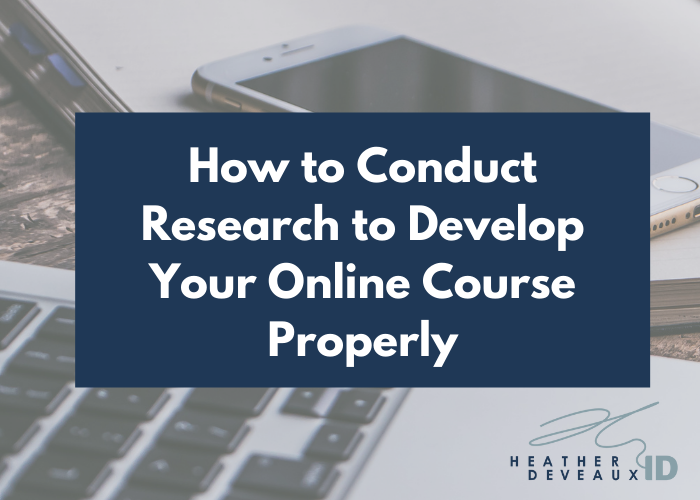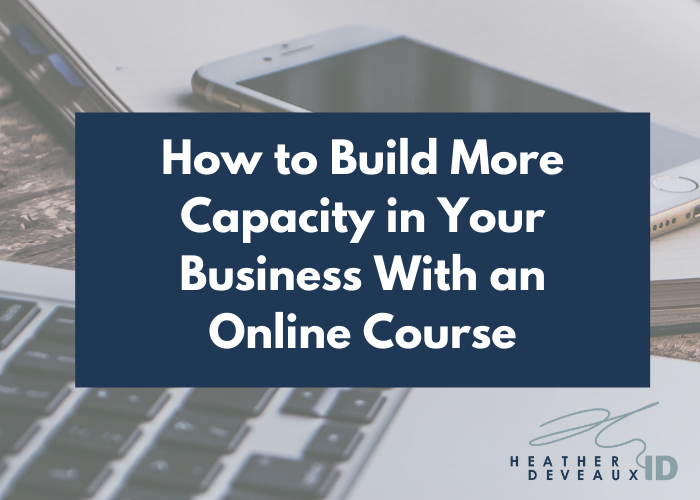How to Create Containers for Transformational Learning Experiences
Not all experiences provide value. Not all learning provides transformation. But all experiences can provide transformational learning if you play your cards right.
Transformational learning isn’t a buzzword. The notion of transformational learning experiences is nearly 50 years old – and that’s just when it got a recognized theoretical name that was easy to remember. In the life coaching industry, you hear about transformation all the time.
In entrepreneurship and professional development, leadership, and personal growth seminars, you hear a lot about transformation, but you might not be familiar with how transformational learning actually takes place, how you can harness it, and what your students can learn from it if you include transformational learning experiences in your online course.
Throughout this article, we’re exploring transformational learning experiences as a tool and how to foster them when you work with us to create an online course. Whether you are a solopreneur interested in growing your reach with an on-demand training course, or you’re a non-profit organization wanting to add value and drive change in your community, transformational learning experiences are essential.
What are Transformational Learning Experiences?
Let’s start by defining transformational learning: in a nutshell, transformational learning experiences are experiences by which you are able to make meaning that allows you to be, feel, act or do something different than you did before.
The reason you are able to be, feel, act, or do something different than you were, felt, acted, or did before is because after studying those experiences through the lens of transformation, you’re armed with a new set of data about yourself, your workplace, your business, opportunities, friends, family, options and more.

Transformational learning experiences provide those willing to make meaning out of situations with a goldmine of opportunities to learn about themselves, and their potential and to create a different life for themselves.
Finding Meaning in Everyday Life and Learning
But not all transformational learning experiences need to be so dramatic. You might be thinking about a situation you encountered over the weekend with a friend. Perhaps you disagreed with a friend about their life choices or their opinion about something.
If you were curious enough about the disagreement instead of just letting it fester or calling a draw, you might come to find that the frustration caused by the interaction is actually rooted in a similar experience you had before in which you made a different decision. When you take the time to examine that decision and compare it to your friend’s decision, you have the opportunity to see what might have been. And we don’t like “what might have been” scenarios. We want people to think we are confident in our decisions and we don’t like to backpedal, especially publically, when we are wrong.
This is a common, yet simple example of how you might make meaning of a situation to help yourself become different from who you were before. What’s interesting about transformational learning experiences is that you don’t always have to do something with the new information just yet. You might end up tucking it away for safe keeping until such time that it makes sense for you to pull that nugget out of your back pocket and apply it in a new way in your life.
Regardless of when you decide to take action with that information, the beauty of transformational learning is that your brain is tuned into the opportunities to recognize when something different could be done, said, or achieved because of new information.
Transformational Learning Experiences in Online Environments
How does this impact online learning or online courses? Great question. Firstly, when you’re talking about creating an online curriculum, you need to account for the opportunities where you might tap someone’s brain to make meaning of a situation.
This is a skill, to be clear. Both from an instructional design standpoint and also from the learner’s perspective. In other words, you have to be skilled in both creating a situation where a learner feels comfortable in making meaning or discovering a transformation opportunity, and your learner needs to be willing to learn from the experience.
Most online courses fill hours with endless activities or informational sessions that don’t provide transformational learning experiences. Even traditional education and higher education seek to produce regurgitated or light meaning-making (if at all) so people are not accustomed to seeking out the value of a learning experience. We (all of us, thanks, public school, thanks.) are used to being told what we are going to learn.
Adult education is a field that promotes and explores the meaning-making and transformational learning experiences are at the heart of every adult learning experience. Whether you realize it or not, when someone gives you a course outline and tells you what you’ll learn, your brain turns off responsibility beyond simply hearing the information.
We don’t make meaning automatically. We need to work to apply new knowledge to what we already know and then figure out how that new knowledge fits into the next version of ourselves. But when you start working to show up, ready to learn by making meaning, literally any experience you encounter can have value and help transform your life.
Three Steps to Creating Opportunities to Learn
Asking a student or learner to identify an existing position or path they are is a reliable way to get people to ground themselves in their experience. We’re so busy looking forward, unsure of where we’re headed, while simultaneously trying to run from our past that we rarely take stock of “what is” in the moment.
Grounding an experience in the here and now can help transformation take hold. When you ask a student to ground themselves in a learning experience it can sound quite overwhelming and depending on the subject matter – taxes, for example – you might risk losing them altogether. Use language that reflects the mood of the learner: “how are you feeling about your taxes (or whatever) right now?”
Notice the word, “feeling” in that question. When we ask people to identify how they are feeling, we’re helping to bring them out of the pattern or production and consumption and they are better able to focus on what is happening for them right now. Whether they use the right words to describe those feelings is irrelevant. We want them to simply stop and take a look.
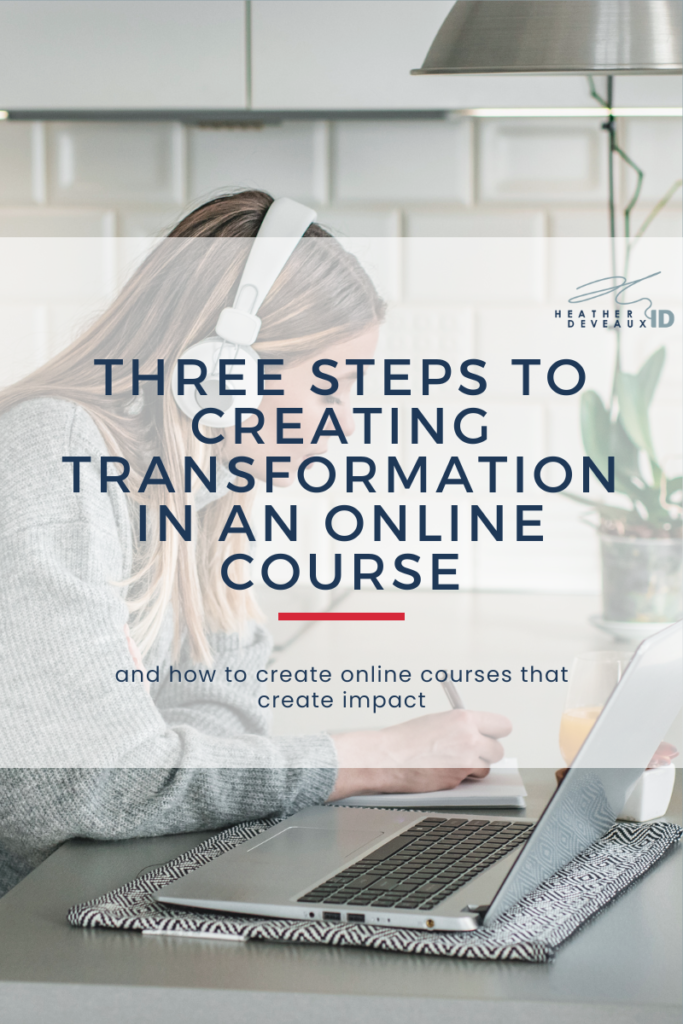
When you’ve instructed or asked your learner(s) to evaluate their feelings related to the subject matter or intended result of the course, the next step is to ask them to think about when they had to learn something new to do a job, complete a task or fulfill a requirement.
Everyone has a First Day
A relatable example of this is to ask people to think about when they started a new job. How did it feel on day one? Did you know everything there was to know about the job on day one? Probably not. What we’re doing here is asking students to remember a time when they were able to learn something new. In an online room where completion is the goal, you might always have full participation.
This is true in workplaces where employees must complete a certain number of levels of courses in order to remain employed. But when you ask a student to recall a time when they were able to learn something new and ask them to think about how they use that information in their day-to-day lives now, it makes the learning experience more valuable. It might even be the first time someone has ever asked them to validate a previous learning experience.
Whether or not the experience they reflect on is related to this new experience, we want to paint a mental picture of success and we want to ask them to feel how good it was to complete that course, workshop, etc. This creates a link between success before and success now. And it’s fun to imagine all the cool things people have done. Even if it’s just tax certifications. Hooray for taxes.
Intentions Create Momentum
The final step is to ask your students to set an intention for the course. We’re not talking about woo-woo intentional, manifestation stuff, although that is cool too from time to time.
We’re talking about creating a learning intention. For example, let’s say you’re a student in an online course about how to file your taxes. You might need to complete this course in order to run your business more economically. Perhaps you aspire to stop the cycle of owing the government payment at the end of every year. Avoiding a high tax bill is certainly a motivation to take the course. But it is not exactly what you’ll learn in the course. It’s your job as the student to determine what you want to get out of the course.
Without prompting, you might just run through the course, clicking “complete” after each module just to say you did it.
Sure, that sounds harsh. Who signs up for a course (a tax course of all things!?) with the intention of not learning anything? A L O T of people. Only about 13% of people finish an online course, according to NovoEd. Another source suggests between 5-15% of students complete an online course they’ve purchased or enrolled in. So why bother even creating one if nobody is going to finish it?
Online Courses are Vehicles for Transformation
There are many reasons to create an online course. Truthfully, many benefits to offering an online course in the first place. But, sometimes those courses don’t deliver on the promise of making people better.
In entrepreneurship, especially digital entrepreneurship, the promises are endless. Very few people who sign up for an online business course actually finish it. And even less do something with the information they’ve received once they finish it. Because people are busy. But also because there’s a disconnect between sharing information online and teaching online. And most subject matter experts, for example, entrepreneurs, miss the mark on the teaching part.
And it’s with good reason. You had to learn to be an entrepreneur. You have to learn to be an online teacher as well. But before you can teach, you need an online course container. And you want to make sure that your online course does what you said it would do. Taking a transformational learning approach can ensure that your students find their place on the map. It helps them understand why they are there to learn with you in the first place. Asking a student or learner to recall the desired transformation also helps to keep them motivated. Motivated beyond the usual “complete” button.
For more information about creating online courses that create transformational learning experiences, book a call with us today. We work with you to ensure your subject matter expertise shines bright. Because you want to create transformation. And you want to promise results. We can show you how.

